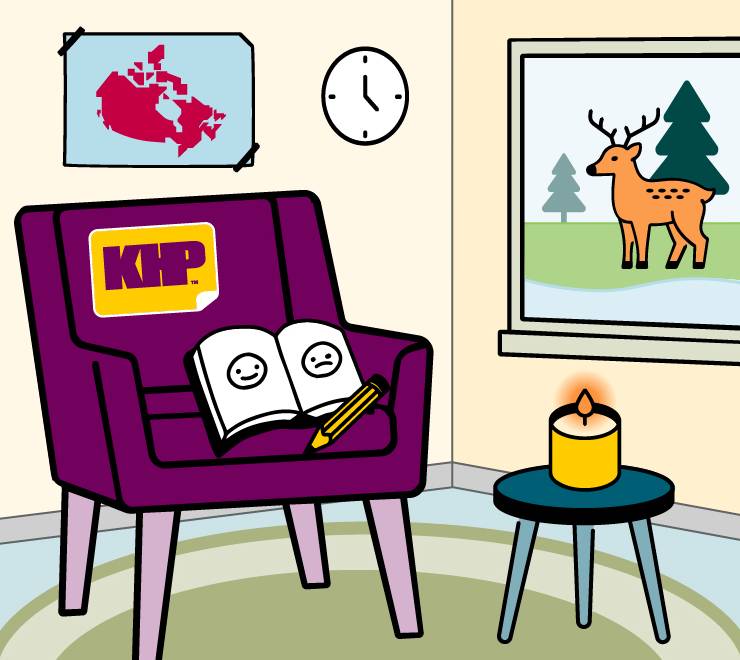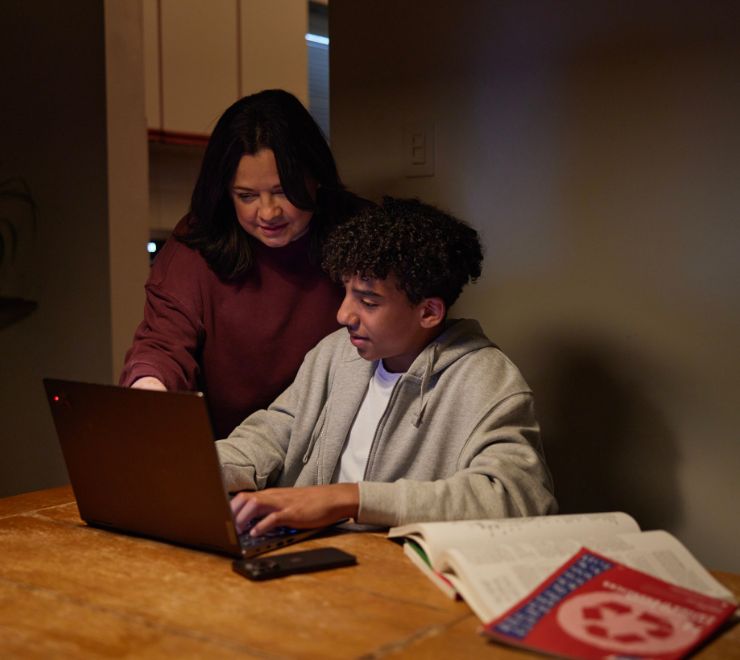Sleep is important for overall health, but busy schedules, stress and health problems can all get in the way of a good night’s rest. When things get busy, it’s OK for the amount of sleep to fluctuate, as long as you’re not constantly depriving yourself of sleep.
Here, Kids Help Phone offers some suggestions to talk to the young person in your life about their struggles with sleep.
How do I start a conversation?
When approaching this topic with a young person:
- use a warm, calm tone of voice to create a feeling of comfort
- empathize with feelings of exhaustion and frustration
- reflect that lack of sleep can take a toll on their emotional, physical and spiritual health and well-being
- be alert to the possibility that changes in sleep patterns can signal other problems such as health or mental health disorders
How do I learn more about the young person’s sleep experience?
Consider the following questions:
What type of sleeping trouble are they experiencing? Some common difficulties include:
- trouble falling asleep
- trouble getting back to sleep after waking during the night
- waking up too early
- sleeping too much (i.e. more than 11 hours per night)
- experiencing nightmares
How is the quality of their sleep? You can try asking:
- “How do you feel when you wake up, on a scale of one to 10, with one being extremely tired and 10 being very refreshed?”
Have they had any recent changes in their sleep patterns? You can try asking:
- “How often do you have difficulty sleeping?”
- “When did you notice that this difficulty sleeping began?”
- “Did something happen at that time?”
How are their sleep issues impacting their life? You can try asking:
- “How is difficulty sleeping affecting you emotionally and spiritually?”
- “How is difficulty sleeping affecting you physically?”
- “How is difficulty sleeping affecting you at school?”
What else can I try?
It’s important to create a feeling of calm and relaxation for the young person in your life. You can try:
- speaking in a slow, calm and soothing tone of voice to create a feeling of comfort
- asking, “Is there something that helps to comfort you when you’re trying to sleep?”
- asking, “Is there someone in your life who comforts you and makes you feel safe? Picture this person’s face in your mind. If they were with you, what would they say or do that would be helpful?”
You can also help the young person to be gentle with themselves by:
- encouraging them not to put too much pressure on themselves to get to sleep:
- explain that when we put pressure on ourselves to get to sleep by thinking thoughts such as, “I must stop worrying!” or “I need to sleep now!” it releases adrenaline in our bodies, which makes it harder for us to get to sleep
- instead, suggest that they send themselves calm and soothing messages or do some deep breathing exercises
It’s important to focus on what the young person needs right now.
You can ask, “Is there anything on your mind that is making it hard for you to sleep right now?”
- if they wish, discuss any worries that are interfering with their sleep
- they may also try keeping a pen and paper beside their bed and writing their worries down on the paper to be dealt with later
- pull them back from worrying about things that have occurred in the past or may occur in the future; encourage them to focus on the present moment
Other ideas that help promote sleep include:
- being physically active during the day (spending time on the land and being outdoors, if possible)
- having a bedtime routine, including going to bed and getting up around the same time every day
- taking a warm bath
- listening to relaxing music
- doing a quiet activity in bed (e.g. reading, storytelling, beadwork, etc.)
- turning off electronics at least one hour before bed
- establishing rules about electronics being in bedrooms during sleep time (e.g. TVs, phones, tablets, gaming consoles, etc.)
- avoiding caffeine in the afternoon and evening
- as best you can, creating a sleeping environment that is quiet and dark (blocking out sunlight if necessary)
If the young person is unable to fall asleep after 20-30 minutes, you can suggest they get up and do a quiet and relaxing activity (e.g. colouring, meditation, listening to soothing music, journaling, etc.) somewhere else. Encourage them to go back to bed when they feel sleepy again.
Sleep is essential for everyone’s overall health and well-being.
If the young person in your life is experiencing struggles with sleep, they can talk to a health-care professional. They can always connect with a Kids Help Phone counsellor at 1-800-668-6868 for more information.














